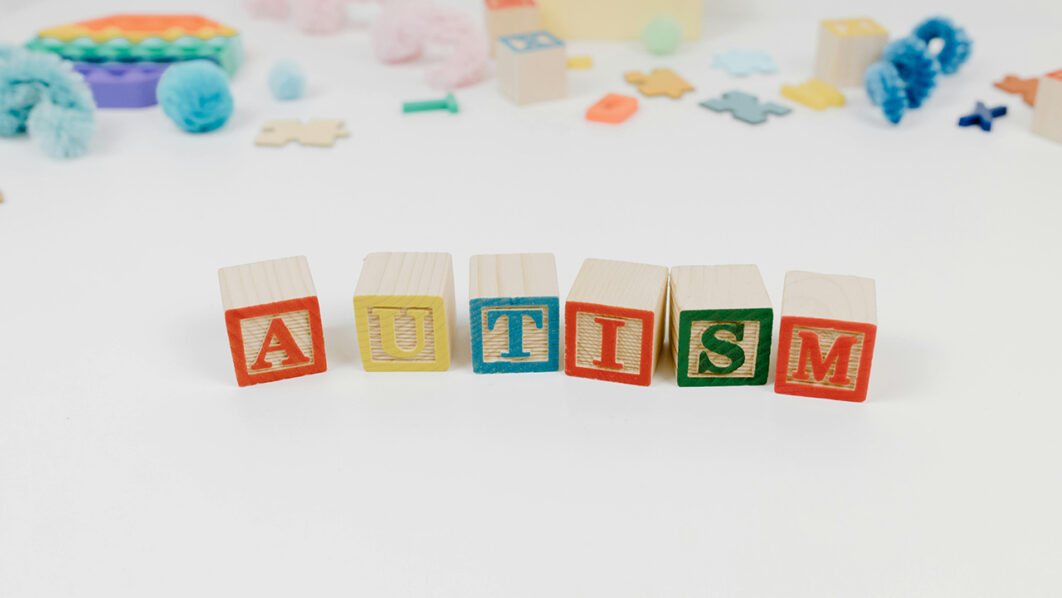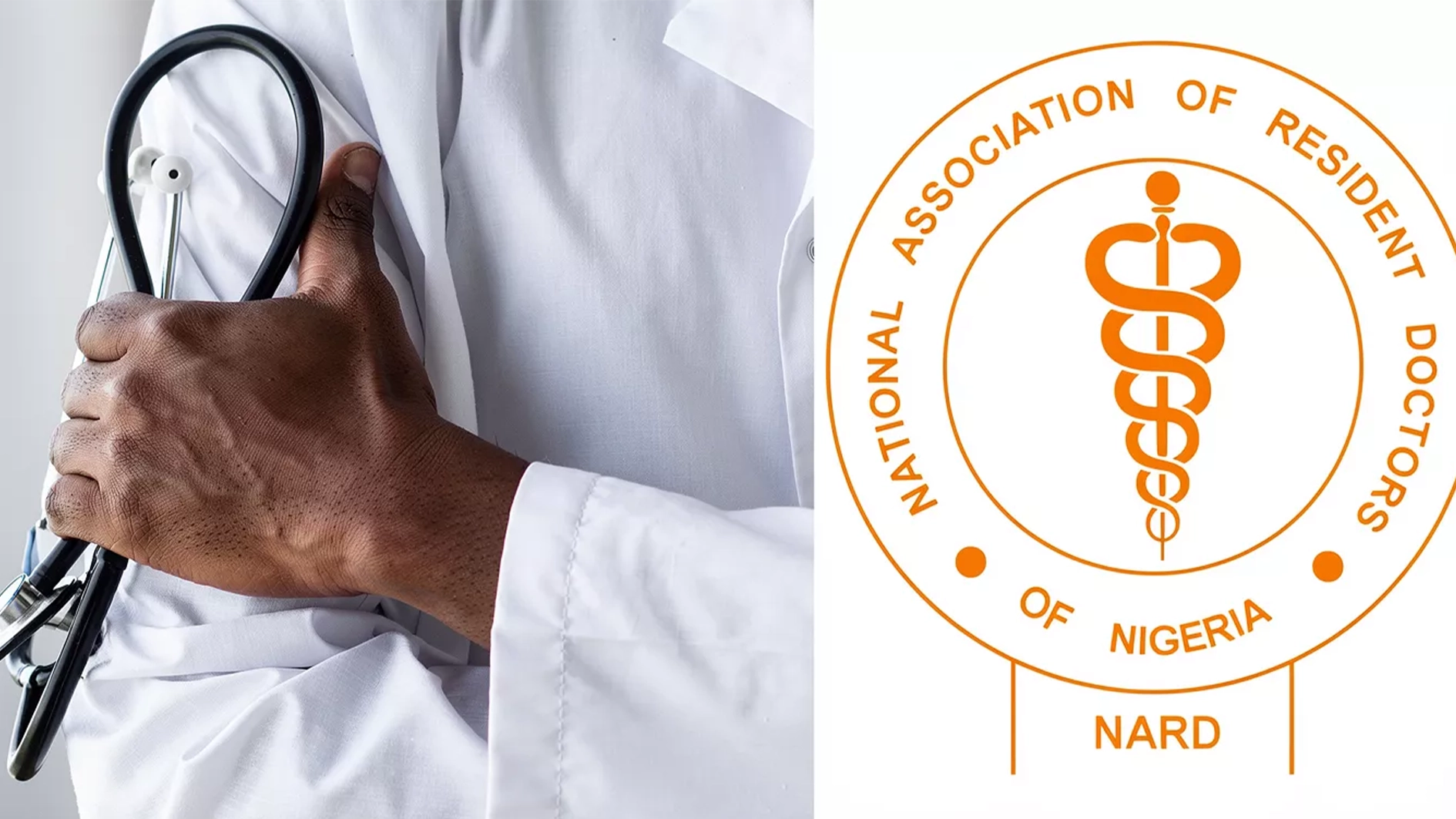
With research reports disclosing that one out of 100 children around the world is diagnosed with Autism Spectrum Disorder (ASD), MARIA DIAMOND spotlights the myths and reality of the disorder, sharing insights from parents, care-givers and medical experts.
One out of 100 children around the world are diagnosed with Autism Spectrum Disorder (ASD), a neurological and developmental disorder that affects how people interact with others, communicate, learn and behave. According to the World Health Organisation (WHO), there are approximately 135 million established cases of autism in the world. Although data on autism in Nigeria and Africa generally is sketchy, a 2014 research indicated that 54 of the observed sample of 2,320 children in Nigeria had autism.
Findings from a research by the National Institute of Environmental Health Science (NIEHS) revealed an increase in measured autism prevalence globally. Approximately 1/100 children are diagnosed with Autism Spectrum Disorder around the world. Prevalence estimates increased over time and varied greatly within and across socio-demographic groups. Since 2012, 99 estimates from 71 studies were published, indicating a global autism prevalence that ranges within and across regions, with a median prevalence of 100/10,000 (range: 1.09/10,000 to 436.0/10,000). The median male-to-female ratio was 4.2. The median percentage of autism cases with co-occurring intellectual disability was 33.0 per cent. Estimates varied, likely reflecting complex and dynamic interactions between patterns of community awareness, service capacity, help seeking and socio-demographic factors.
Although the cause of ASD is not medically unanimously understood, scientists have found rare gene changes or mutations, as well as small common genetic variations in people with autism, implying a genetic component. A growing area of research focuses on interaction of genetic and environmental factors. For example, a woman’s exposure to harmful contaminants during pregnancy may trigger a genetic mutation leading to autism in her child. No link has been found between autism and vaccines, including those containing thimerosal, a mercury-based compound. However, progress has been made towards understanding different environmental risk factors, and the clearest evidence involves events before and during birth such as advanced parental age at time of conception; prenatal exposure to air pollution or certain pesticides; maternal obesity, diabetes or immune system disorders; extreme prematurity or very low birth weight and any birth difficulty leading to periods of oxygen deprivation to the baby’s brain.
However, these factors alone are unlikely to cause autism. Rather, they appear to increase a child’s risk of developing autism when combined with genetic factors.
This lack of clarity in the causes of autism is why a number of Nigerians, nay Africans, especially in rural areas, see the disorder as the handiwork of evil spirits. Thus, people with autism are thought to be possessed by evil.A heavily pregnant woman in Lagos, Omoladu Adewale, seen at the healthcare centre where she went for antenatal, shared her perception of ASD with The Guardian.
Her words: “How do you explain that a child behaves differently and abnormally in all ramifications? An autistic child is literally mute, can’t communicate and when he or she attempts communication it comes out off and distorting. They behave abnormal, weird and worrisome in a way that sometimes scares people away. It’s almost impossible for them to understand anything normally. As they grow older they get aggressive with normal behavioural dispositions of others and environmental situations and even get aggressive. There is nothing normal about autism and I don’t see it as a disability; I see it as abnormal, evil and not of this world. Disability is not being able to walk due to accident or birth defects; disability is being blind, deaf, dumb, etc but with mental awareness of your environment and the people around. Autistic is living in a different world of your own with zero cognitive or emotions to feel anything for others and just be weird all the way. That is demonic.
“It can’t feel safe to have such people around others and no parent should have to go through the struggles of raising such children. This is why I can’t even imagine the possibility of having such a child, hence my ensuring that I take all measures during pregnancy to avoid any evil spirit entering my stomach and turning my baby to evil. Medical scientists will always saddle themselves with creating a name for anything and everything even when they do not have a reliable reason or cure for the said disorder. Autism is part of it.”
When asked why she believes autistic people are evil, Adewale said: “I was raised in Osogbo in Osun State. Growing up, we were constantly told that it is unsafe for pregnant women to go out in the afternoon especially when the sun is high because this is when evil spirits come out to possess babies in the womb. However, if you must go out, you should have a sharp pin/needle or blade tied around your naval, otherwise the baby in your womb will be vulnerable to evil. The pin or blade wards off the evil spirit but if you don’t have them, they will enter your womb and possess your baby and when such babies are born, they become what the western medical people call autistic, with abnormal and erratic behaviour. So, every woman in my community knows how to protect her baby in the womb with blades and pins tied to her navel or stay indoors and wait till the sun goes down before going out of the house.”
Corroborating the claim, a mother, who spoke on the condition of anonymity, said her four-year-old daughter, who was diagnosed with autism in a hospital, got healed through fasting and prayer.
Her words: “My daughter suddenly stopped talking and we took her to the hospital where they said she was autistic. Immediately, I rejected it. I took her home, prayed, called my pastor and we started praying for her that every spirit of autism should come out of my child. There is no place for such evil in my family. We kept praying and fasting for days and suddenly she regained her speech. There is no such thing as autism in the presence of God.”
An elderly woman, who sells herbal medicine in Isolo area of Lagos, popularly known as Iya Abiye, also said: “What medical people call autism is actually demonic possession of a child. This is why there is no cure for it medically. We call such a possessed child with autism ‘abami omo’. Traditionally, the cure for it is death, one that happens when the evil spirit is warded off or tired of staying in the person’s body. You may say death is not a cure but in this case it is, because you cannot cure evil spirits; you can only destroy them by getting rid of them from this world. Unfortunately, the possessed child dies with the evil spirit. This is why to avoid such incidents we relentlessly shun pregnant women from going out in the hot afternoon. Another place a pregnant woman has no business going to in the afternoon is the river. If you must go out anywhere at all in the afternoon, wear the blade or sharp object amulet that makes your baby immune to evil spirits wandering about looking for a pregnancy to possess.”
Debunking the myths, a gynecologist in a private hospital in Lagos, Dr. Tomisin Ogundare, wondered why Africans still associate autism with evil spirits. She said: “It is disappointing to know that in this modern age where medical awareness is at the doorsteps of everyone, people in this country still tell this bizarre and barbaric narrative; the same way they tagged people with sickle cell anemia ‘abiku’ for ages until very recently when they finally came to terms with the reality of the inherited red blood cell disorder that affects hemoglobin thereby leading to death if not properly managed. Now, everyone understands sickle cell anemia and the genetic causes as well as the preventive measures against it. This would eventually be the case with the Autism Spectrum Disorder despite our strong sentimental belief in the presence of spiritual forces in health issues.
“Africans have always been slow in accepting western/scientific medical analysis and approach to major health issues due to the obsessive belief in evil forces beyond the human realm. Everything bad that happens in Africa is tagged as evil; evil spirit is solely responsible for poor choice, negligence, ignorance etc.
“There is no doubt that autism as a developmental disability that causes significant social, communication and behavioural challenges can be exceptionally challenging to manage, both for the parents and the autistic child or adult. This is because ASD showcases are not the same. So, it is not a one-way street disability as with other disabilities; the disorder varies based on genetics.
“The common factor is that autistic people don’t know how to communicate what they need. They don’t know what people are thinking or feeling and more often than not, it seems they don’t care. This makes it difficult to tag along with their peers thereby having limitations that slow their wings. But they could still fly and be whoever they want; it would only take a little longer than others but with special care and attention from loved ones.
“However, because ASD varies in severity with each child, there is no hard and fast rule. It is not uncommon for children with ASD to begin developing speech in the same manner as typical children, as well as to regress in speech and language comprehension around two years old. Every autistic child is different when it comes to learning to speak. Some kids might start talking later than others, or in different ways. Others might use different methods to communicate, like pictures or devices. Of course, we also know that parenting a child with autism is very difficult. Knowing everything about an autistic child and what they need from parents will take a lot of care, patience and most of all love. However, this steadfastness is rewarding when autistic people eventually come to terms with the peculiarity of the disorder and master the craft of living, cohabiting and becoming successful in life despite the disability.”
The gynecologist, who also spoke on the early signs of ASD, added: “Autism can be detected at a very early stage of pregnancy through brain scans and other fetus activity checks. However, more often than that, it is detected in children from two years old. Early signs of ASD include lack of social skills, communication, restricted or repetitive behavioural patterns, interests, activities and emotions. Autistic children have difficulties in following simple verbal instructions; they do not have interest in imaginative play, showing little interest in other children and change of all forms sets them off. Also, autistic children avoid eye contact; they rarely smile and they are easily irritated at the slightest provocation. Autistic children can have particular sleep and settling problems such that make them stay up late or wake up too early. However, some children with autism become more engaged with the world and show fewer disturbances in their behaviour as they mature.”
On the effectiveness of ASD management medications, the doctor said some medicines can help with related symptoms like depression, seizures, insomnia and trouble focusing. She, however, noted that these medications alone are not as effective as therapies on behavioural patterns and general human relation.
Sharing her experience of caring for an autistic child, a parent, Motunrayo (surname withheld), who has a nine-year-old son with the disorder, told The Guardian that he was diagnosed in 2020 when he suddenly preferred pulling her towards what he wanted instead of speaking.
She said: “My son was diagnosed in February 2020. This diagnosis came because we had taken him to see our family doctor because we noticed that he had stopped using his words and instead he will pull us towards what he wants and all. So, part of the signs that he showed were pulling us towards things and lining up his toys.
I, however, didn’t know they were signs of autism until the doctor told us. There are tests specifically for autism diagnosis and they are carried out depending on how severe or mild your child’s case is. So, for my son, his non-verbal diagnosis was done using play skills like pretend play and the doctors got their answers, which proved that he was on the Autism Spectrum Disorder.”
Asked if her son has any other health issues aside from ASD, Motunrayo said he doesn’t have any other condition aside from autism. On the challenges of caring for him as a parent, she stated that he struggles with accomplishing tasks fast and needs a lot of support.
Motunrayo explained further: “He struggles with a lot of things that his five-year-old younger sister who is not autistic does at the snap of her fingers. He cannot brush his teeth himself and so I help with it. Dressing up that should not exceed five minutes takes him 15minutes so we have to be on top of things differently. If we are supposed to start getting ready for school at 8am I start at 7:30am or earlier because he needs the extra time. However, he is capable of doing a lot on his own but with prompts and my husband and I do a lot of prompting. He definitely needs a lot of support in terms of daily activities. Imagine simple things such as brushing or putting on socks or even fixing himself a bowl of cereal will take a lot of time for him and he will just need that support, patience and tolerance from everyone he comes in contact with, especially his peers in school. But these children find his behaviour strange and do not have the patient to tolerate or accommodate him. This is already posing an issue for him and I fear it might as he grows older if we as his parents do not figure out a smart way to help him understand how to handle himself and others in a worst case scenario. I really do not want my son to go through the kind of difficulties I sometimes imagine might be his lot so I am constantly looking for ways to make his life better.”
Probed further on his coping mechanism with other children and people generally, the mother said: “He is trying to cope, but he has a lot to learn about boundaries. He doesn’t know that he needs to give people space. He plays rough and likes to jump on people, which is not safe. So, we are still learning how to teach him boundaries and generally help him grow normal in his disabilities.”
Considering his cognitive limitations, what measures do you use to make him properly understand what you expect of him? Motunrayo responded: “I personally don’t use any form of materials to relate with him at home because he understands most of the things we ask him to do based on routine. But because his school teacher has a lot of other children to tend to, he uses Picture Exchange Communication System (PECS) at school, which just shows him what his activities for the day will look like. Oh yes, I have a-days-of-the-week calendar at home for him, which shows that Mondays to Fridays are the only days you go to school because even on Saturday he gets up and asks to go to school and gets very fussy about it if you don’t figure out a way to make him understand.”
ASD Lifespan
Studies have shown that individuals with autism generally succumb to health complications approximately 15 to 20 years earlier than the general population. Longitudinal studies that followed people with Autism for over 20 years found that the average life expectancy ranges between 39 years and 58 years.
Autism can be a risk factor that reduces the average life expectancy of individuals, but autism in and of itself does not cause a shortened lifespan. Rather, conditions related to autism can affect the length of mortality.
A 2008 study conducted in Denmark found that the mortality risk of those with autism was nearly twice that of the general population. Furthermore, individuals with autism generally succumb to health complications approximately 15 to 20 years earlier than the general population. Individuals who are more severely affected by autism have a shorter life expectancy than those less affected by the disorder.
According to the DSM-5, there are three levels of autism, each requiring varying degrees of support. Individuals that fall within level one are considered to have a mild form of autism requiring minimal support typically within the areas of socialisation and understanding nonverbal communication. The life expectancy for people with Level One Autism is the highest of the three levels and falls slightly below the average life expectancy of the general population. In Level Two Autism, individuals are moderately affected and can require substantial support due to challenges with socialising, verbal communication and nonverbal communication. The life expectancy for Level Two Autism ranges from 50 to 60 years, which is slightly lower than Level One. Level Three Autism requires substantial support for a prolonged period. People in this category are typically nonverbal and have difficulty understanding verbal and nonverbal communication and socialising and have numerous repetitive behaviour patterns. In some estimates, life expectancy for Level Three Autism is as low as 35 to 40 years old.
However, a recent study conducted by O’Nions, et al. (2023) used anonymised data between 1989 and 2019 from general practitioners in the United Kingdom to compare persons who received an autism diagnosis with people of the same age and sex who did not receive a diagnosis of autism. The researchers found that men with autism had an estimated life expectancy of 72 to 75 years and women with autism had an estimated life expectancy of 70 to 77 years.
Can autistic patients have children?
A lot of questions have also been asked about the possibility of autistic patients having children of their own. Studies by O’Nions, et al (2023) also show that while you can’t prevent having a child with an autistic disorder, you can increase your odds of having a healthy baby by doing these lifestyle changes: Live healthy, have regular check-ups, eat well-balanced meals and exercise. Make sure you have good prenatal care and take all recommended vitamins and supplements.






